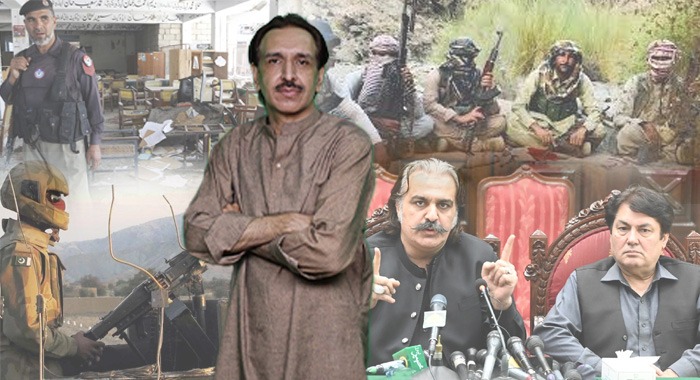The state’s reliance on jirgas in the face of terrorism is a glaring admission of institutional failure. In 2025, as violence surges across the merged tribal districts of Khyber Pakhtunkhwa, we find ourselves recycling the very tactics that led to previous disasters. The jirga system, once a tool of local dispute resolution, has now become a symbol of the state’s abdication of authority, its inability or unwillingness to assert control in regions now rife with terrorism.
Jirgas served a purpose in the pre-merger FATA era, operating in a semi-autonomous legal and administrative framework. But today’s context is entirely different. These areas are now constitutionally integrated into Khyber Pakhtunkhwa. The jirga system should have evolved or phased out in favour of state institutions, courts, police, civil administration. Yet, we see the provincial government clinging to jirgas as a primary tool to negotiate with armed groups like the TTP.
Let’s be clear: holding talks with proscribed terror outfits under the guise of tribal customs does not constitute strategy, it’s state retreat. When the Chief Minister invites elders to CM House to conduct peace negotiations, and those very negotiations coincide with a spike in terrorist attacks in Mohmand, Bajaur, and Swat, one must ask: who is really benefiting?
While the provincial government hosts jirgas, reports continue to emerge of terrorists roaming freely, even attending these talks. In one instance, while a 110-member jirga continued late into the night, it was reported that suicide bombers were present nearby. Simultaneously, attacks were occurring in neighboring districts. The timing is too precise to ignore. Terrorists are clearly using these negotiations as cover to regroup and expand.
In Tirah and Bajaur, the government has tacitly allowed these militants space to maneuver, while making lofty proclamations in the media. Yet in Swat, Mohmand, and beyond, militants are launching fresh offensives. The disconnect between political optics and ground realities is not just troubling—it’s deadly.
Provincial spokesperson Barrister Saif’s claim that terrorism cannot be fought without taking Afghanistan into confidence borders on political fantasy. Pakistan’s Constitution and rules of business grant no provincial functionary the authority to shape or even suggest foreign policy. For a spokesperson of a provincial government to make such a statement is either ignorance of law or deliberate political showboating.
More dangerously, such statements demoralise law enforcement. What message does it send to a DPO in Kohistan or a constable in Bannu when their own government compares the TTP to forces that defeated NATO in Afghanistan? This isn’t just poor judgement, it’s psychological sabotage of the front-line.
IG Zulfiqar Hameed’s assertion that the security situation “is not so bad” is offensive in light of the facts. In just 48 hours, 11 attacks occurred in 8 districts, including high-profile ambushes on security convoys and targeted killings of officers. Swat, Bannu, Karak, Lakki Marwat—no district seems untouched. What constitutes “bad” if not this?
We have credible, alarming reports from independent think tanks, the TTP’s own brag sheet, and government data showing a massive uptick in violence since January 2025. Yet, denial remains the dominant theme from Peshawar.
Chief Minister Ali Amin Gandapur’s contradictory statements are emblematic of his administration’s incoherence. One day, he declares there will be no operations; the next, he claims to support a crackdown. He claims he won’t allow military activity in DI Khan—while failing to attend funerals of martyred officers in his own constituency. His absence in mourning, and in governance, speaks louder than his press releases.
Even more damning are claims, unanswered and unaddressed, that known individuals with alleged TTP ties, like Saqib Gandapur, are being hosted inside CM House. This, coupled with statements suggesting that “extortion money is paid,” raises unsettling questions about whether governance is being ceded to militancy in the name of political expediency.
Let’s speak plainly. There is no government writ beyond the Kohat tunnel. In the southern districts and merged tribal areas, law enforcement is outgunned and outmanned. Nearly half the police stations lack boundary walls. The force is 47% understrength compared to other provinces. Kalashnikovs from the 1980s are matched against modern weapons in militant hands. And in the face of all this, the solution offered is… more jirgas?
Thousands of tribal elders have already been martyred since 2001 for cooperating with the state. Reviving their participation without state protection is not just careless—it’s a death sentence.
What’s unfolding is more than just poor governance, it is a political and moral capitulation to terrorism. The TTP has been all but legitimised as a “stakeholder,” with their demands entertained and their presence tolerated. This amounts to a political mainstreaming of terrorism, done unofficially, with full knowledge of its consequences.
If the state no longer has the capacity to govern these regions, then it must consider radical options, be they military, administrative, or political. If the goal is peace at any cost, then consider a model like Sri Lanka’s or even de facto autonomy under strict oversight. But don’t call it governance when it’s surrender. Don’t call it dialogue when it’s silence in the face of bombs.
The time for half-measures is over. If the state intends to survive in Khyber Pakhtunkhwa, it must reclaim its monopoly on force—not share it with militants wearing suits or suicide vests. Otherwise, all that remains is theatre: of jirgas, photo-ops, and funeral prayers for a nation in retreat.





